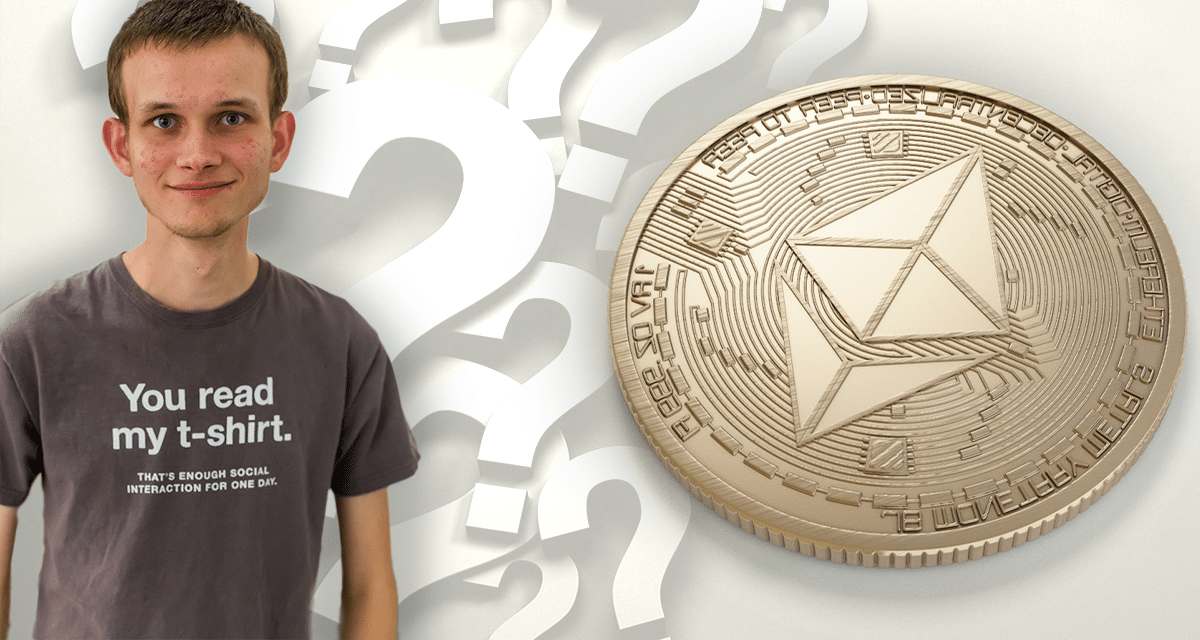
to be or not to be like Bitcoin?
- World
- May 18, 2022
Vitalik Buterin, co-creator of Ethereum, decided to make public a moment of introspection and self-analysis. The programmer wrote a dozen contradictions that he himself detects in his thoughts and values. The first of these involves the network created by him and its predecessor, Bitcoin.
“There is contradiction between my desire to see Ethereum become a more Bitcoin-like system, emphasizing long-term stability, even culturally, and my understanding that getting there requires a lot of coordinated active changes in the short term,” he said., post Buterin on his Twitter account.
Is that Ethereum is a constantly changing entity. Its monetary policies, its consensus algorithm, the way commissions are paid… everything seems to be progressing by trial and error in this general-purpose network specializing in smart contracts.
Ethereum’s constant change has cost it several criticisms from bitcoiners. In general, for supporters of the cryptocurrency devised by Satoshi Nakamoto, it is essential that good money is static in its characteristicsin other words, don’t change the rules in the middle of the game. In this, Bitcoin carries a huge advantage, with immovable emission and operating properties and recorded in the code itself.
The second contradiction confessed by Buterin, is related to the first. He does not decide if he prefers, in Ethereum, to reduce dependence on people, which implies building fixed systems that can withstand the passage of time; or if he prefers to give relevance to the protagonists (live players) who help the world move forward, whom he appreciates.
A strong layer 1, or a strong “Ethereum ecosystem”?
The contradictions of the Russian-Canadian developer they are not only about what Ethereum should be, but also about what this network should look like. He writes:
Advertising

There is contradiction between my desire to see Ethereum become a layer 1 that can survive truly extreme circumstances, and my understanding that many key applications in Ethereum are already based on security assumptions much more fragile than anything we consider acceptable in the design of the Ethereum protocol.
Vitalik Buterin, co-creator of Ethereum.
By saying this, Buterin refers to second-layer and sidechain scalability solutions that many developers and users have chosen to use Ethereum. As CriptoNeticias has reported on numerous occasions, the main network is easily congested and, when this happens, rollups such as Arbitrum or Optimism become the salvation of the ecosystem.
But, these second-layer solutions do not have the security and decentralization that the main network does, on the other hand. The co-creator of Ethereum is aware of this and considers that, anyway, the ecosystem as a whole will be secure and decentralized if the base layer is strong.
Also, another of his contradictions is on this topic: “There is a contradiction between my desire to simplify layer 1 as much as possible and my desire to simplify the entire ecosystem as much as possible.”

Vitalik Buterin on Bored Ape and the goals of cryptocurrencies
Did you know that Vitalik Buterin dislikes some of the uses given to Ethereum? For example, he dislikes the Bored Apes, a collection of non-fungible tokens (NFTs) valued at millions of dollars.
Anyway, he detects a contradiction there. Programmer he is aware “that those things are a big part of what keeps the crypto economy going”. Adds Buterin: “[esas aplicaciones] they pay for all my favorite DAO and governance experiments.”
Also contradictory, according to Buterin, is his desire for cryptocurrencies to grow beyond finance and his understanding that is finance the most successful category of applications. As he explains, this is so “especially among residents of the third world, human rights activists and vulnerable people in general.”
Social and political contradictions of Vitalik Buterin
Buterin’s list of contradictions is not only about issues related to his computer creation. Also, more humanistic issues concern him.
For the 28-year-old billionaire, his love for things like decentralization and democracy is contradictory, when — according to his own words – in practice he agrees more with the intellectual elites than with “the people” on many specific political issues.
Regarding governments, politics and cryptocurrencies, Buterin writes:
There is contradiction between my desire to see more countries adopt radical policy experiments (e.g. ‘crypto countries’) and my understanding that governments more likely to go all the way on such things are more likely to be centralized and not diversity-friendly internally.
Vitalik Buterin, co-creator of Ethereum.
So far, the only country that meets these characteristics 100% is El Salvador. As Criptonews reported last year, Buterin rejected the imposition of bitcoin as legal tender in that nation. For him, “that companies have to compulsorily accept a specific cryptocurrency is contrary to the ideals of freedom that are supposed to be important for the cryptocurrency space.”
Also, the mind behind Ethereum confesses that there is a contradiction between its “desire to see more diversity in interesting cultures” and its “understanding that maintaining a culture that is distinct from the mainstream seems to often require some kind of insanity or artificial barrier.” On the latter, he adds: “ideologically I don’t like it.”
Finally, Buterin’s contradictions include what he himself wishes to be: a mediator figure who “adds up” and can be friends with everyone? or someone who is firm against evil “at times when the real evil is what we face”?
The “cryptoTwitter” revolved around the contradictions of Vitalik Buterin
This decalogue of contradictions gave to talk during this May 17 in the “cryptoTwitter”. Supporters of the young developer stressed his sincerity for having made these thoughts public.
Also, his detractors – many of them, bitcoiners – took the opportunity to invite him to “change teams”.
“Vitalik, you are a Bitcoin maximalist”, he wrote to her the communicator and popularizer Pablo Wasserman. “You must know this by now. Take the time you want to finally accept it and communicate it. The market will also speak for itself,” he added.
